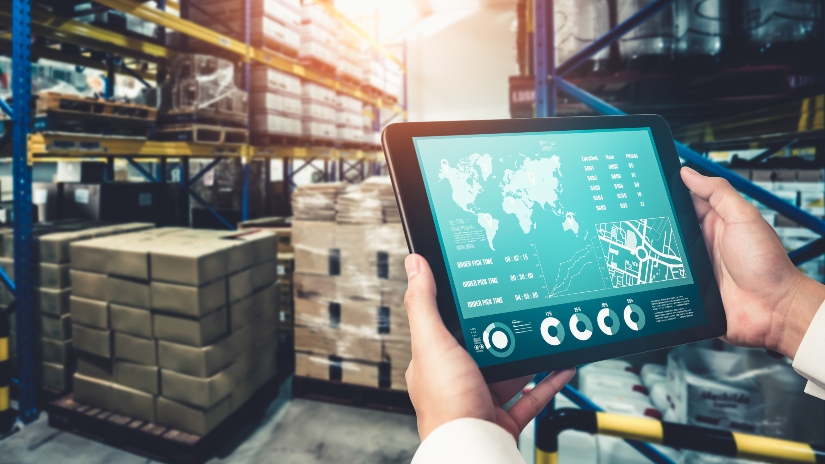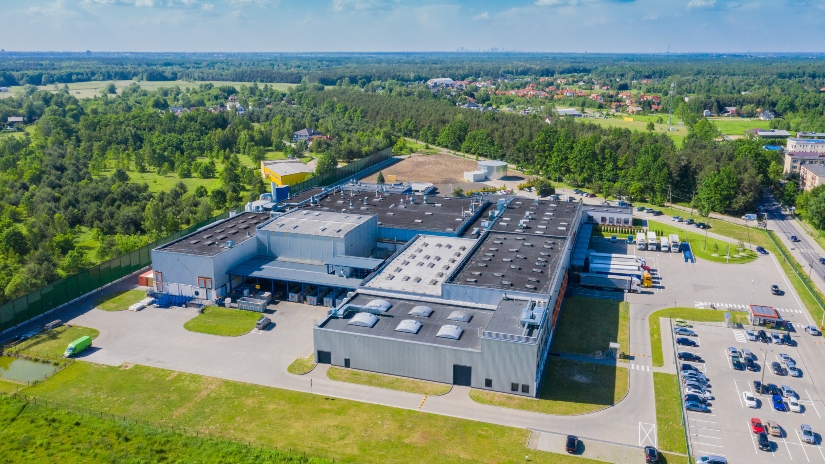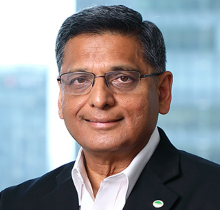By Umeshwar Dayal, Ph.D., Corporate Chief Scientist, Hitachi, Ltd., Senior Fellow - Information Research and Senior Vice President, Hitachi America, Ltd.,
Ellen Carey, Vice President Global Policy and Public Affairs, Circulor, and
Udayan Joshi, Director of Solution Architecture, Environment Business Division, Hitachi America, Ltd.
In recent years, a pandemic, geopolitical tensions and economic pressures have combined to expose significant vulnerabilities and disruptions in supply chains around the world. We’ve learned how important it is to build resilience into our supply chains, not only to address the most immediate challenges, such as identifying the sources of materials and goods produced, as well as managing rising costs and fulfillment delays, but also to also support a sustainable, equitable future.
Reducing carbon emissions is also a key pillar in creating a sustainable global supply chain. Advanced digital technologies such as artificial intelligence (AI), smart sensors and blockchain help generate the real-time data, analytics and business intelligence that create resilience, and give organizations a foundation for tackling carbon emissions by providing a comprehensive view of their carbon footprint across the entire value chain.
Supply chains are the backbone of the global economy, and organizations need transparency across their supply chains to make informed decisions that enable sustainable practices. Many companies have supply chains which are less than transparent and lack visibility beyond the first (direct vendor) or second tier (subcontractor to a vendor) of their supply chain. This leaves them vulnerable to risks they can’t anticipate or adapt to quickly, as well as unable to ensure responsible, sustainable sourcing and production.
Hitachi has partnered with Circulor, a leading provider of industrial, complex supply chain traceability solutions so organizations can track their entire supply chain and have visibility into critical scope 3 emissions. Based on AI and blockchain technology, the technology “illuminates” the supply chain, creating transparency not only across all tiers of vendors, but also across the physical materials that are part of the manufacturing process.
Organizations can visualize and track their entire supply chain on a single dashboard, drilling down into such factors as each supplier’s greenhouse gas emissions ratings. Companies can use these insights to make informed decisions to improve their sustainability while also increasing their ability to stay compliant with regulatory changes.
Equally important, this granular approach to supply chain transparency helps companies transition to the circular economy.

The age of extracting raw materials from the Earth and discarding the resulting products at the end of their useful lives — where they deteriorate in landfills or in the ocean — is over. The world is reaching a tipping point: according to some estimates, by 2030 we will be extracting twice as many natural resources annually as the Earth can supply.1 This means we are using our planet’s resources twice as fast as they can be replenished.
Manufacturing must shift from a linear trajectory to a cycle that keeps materials and products that are still viable in circulation for as long as possible. By reusing, repurposing, recycling and remanufacturing both raw materials and manufactured products, companies can significantly reduce waste and advance sustainable outcomes.
The circular economy represents a leap forward in environmental and socially responsible practice, but it also introduces new complexities to supply chain management and oversight. How do we assess the remaining useful life of a product or material? How do we accurately and efficiently determine which items should be reused or repurposed and which should be recycled? What is the financial impact of each decision, and how does this evolving process change our calculations of economies of scale? In a circular supply chain, manufacturers must capture, analyze and factor in these and other new data points into management and oversight.

New digital capabilities offer organizations an unprecedented level of functionality for monitoring and managing sustainable supply chains. With a comprehensive, transparent platform, they can:
How can organizations build this foundation and begin contributing to a circular economy? The answer begins with data, and companies like Hitachi are creating better ways to extract and analyze data which in turn can yield greater and more actionable insights.
Until now, identifying materials and tracking them through transactions across organizational boundaries has been difficult to impossible, with data often sitting in disparate or siloed systems - and in different data formats. Today, innovations such as digital contracts and distributed ledger technologies (blockchain) can help companies confidently track and trace transactions across the entire supply chain. Modern supply chain traceability solutions pull it all together by integrating, interpreting and analyzing the resulting data on an end-to-end, trusted digital platform.
Through recent experiences, we’ve learned that the supply chains of today face many risks: physical, economic, political and social. We believe the supply chain of the future will be illuminated by data that yields tangible, actionable insights, with the opportunity to be more sustainable, resilient and flexible. Greater transparency and visibility into how goods are sourced and manufactured around the world, whether locally, regionally or globally, will allow organizations to make better, faster decisions while reducing waste, improving efficiency and creating opportunities for innovation. This transformation of our supply chains will benefit all of us as we strive to reduce carbon emissions and create a more sustainable, equitable society.
Register for our on-demand webinar, “Getting to Net Zero: How tracking supply chain sustainability can help business and the environment,” to learn more.

Corporate Chief Scientist, Hitachi, Ltd., Senior Fellow - Information Research and Senior Vice President, Hitachi America, Ltd.
Dayal joined Hitachi America, Ltd. in 2013 after serving as an HP Fellow in Intelligent Information Management and Director of the Information Analytics Lab at HP Labs. At the Hitachi America R&D Division, he led work on AI/big data analytics, organized collaborative creation activities with customers as the Head of the Big Data Laboratory, and later worked as the Head of the Silicon Valley Research Center. Dayal was appointed to his current position in April 2020, after serving as the GM of Hitachi’s Global Center for Social Innovation, responsible for the open co-innovation of novel digital solutions. He currently leads a research program for digital technologies in the Circular Economy.
Dayal is an ACM Fellow, a recipient of the Edgar F. Codd Award from the ACM Special Interest Group on Management of Data (SIGMOD) for fundamental contributions to data management, and a Distinguished Alumnus Award from the Indian Institute of Science. He has over 250 research publications, holds over 60 patents, and has given over 40 keynote and invited lectures at international conferences and workshops. He has chaired and organized numerous international conferences and has served on the Editorial Board of several research journals in data management, distributed systems, and data science.

Vice President, Global Policy and Public Affairs, Circulor
Ellen Carey is the Vice President for Global Policy and Public Affairs at Circulor, where she engages with corporations, policymakers, NGOs and members of the media on the sustainability opportunities within complex industrial supply chains.
Ellen has dedicated her career to advocating for clean technologies—running successful campaigns for technologies such as electric vehicles and renewable energy that shape market dynamics and create new business opportunity.
She has held senior positions at Samsung, Audi of America, and the American Wind Energy Association, working internationally across policy, communications, and corporate development.

Director of Solution Architecture, Environment Business Division, Hitachi America, Ltd.
Udayan is an expert in applying digital technology capabilities to architect solutions that address the triple bottom-line and delivering a positive social impact while fulfilling business requirements across manufacturing, transportation, energy & sustainability and smart spaces. Udayan delivers full-stack solution architecture and design support by leveraging a wide range of Hitachi and broader ecosystem technology capabilities for a variety of solutions including predictive maintenance, asset management, ML/AI-based failure prediction models, process re-engineering, innovative applications of video analytics (such as LiDAR), and manufacturing intelligence solutions.